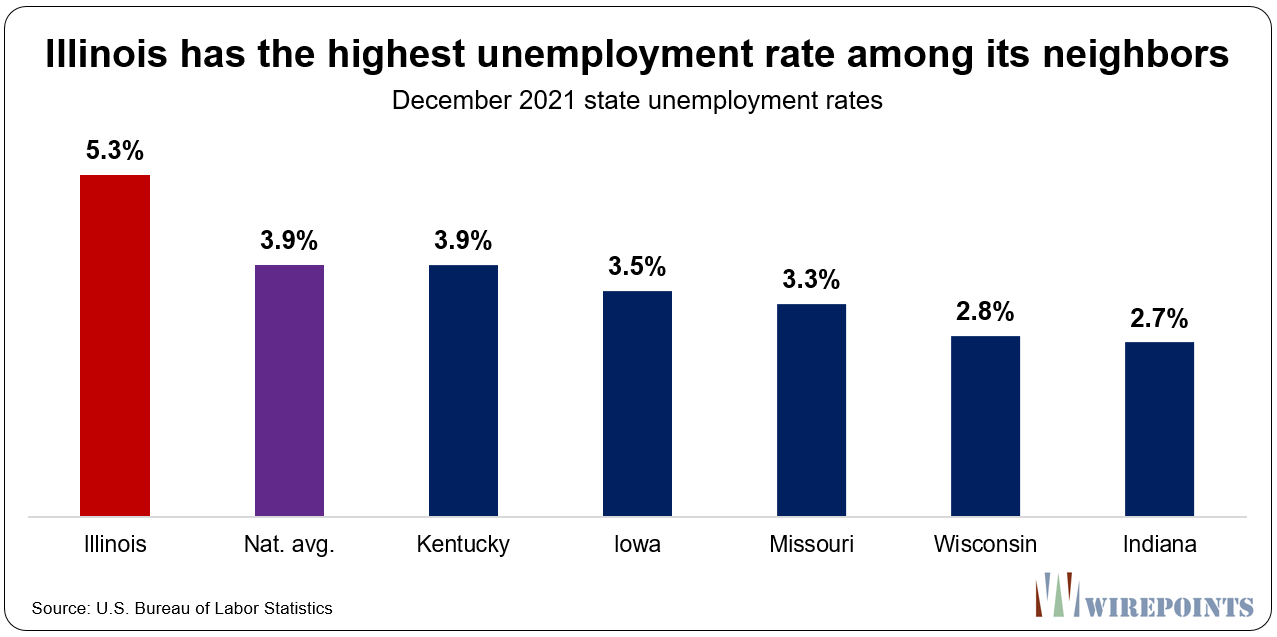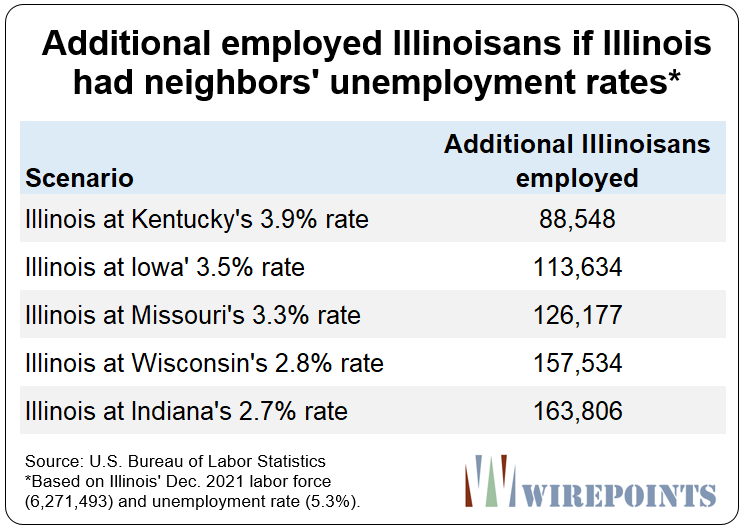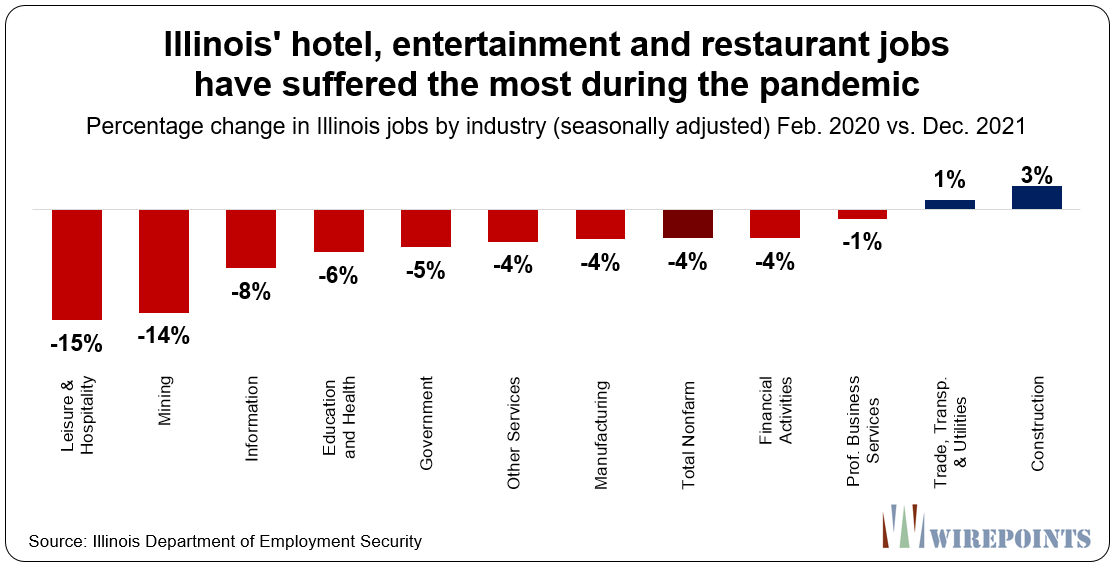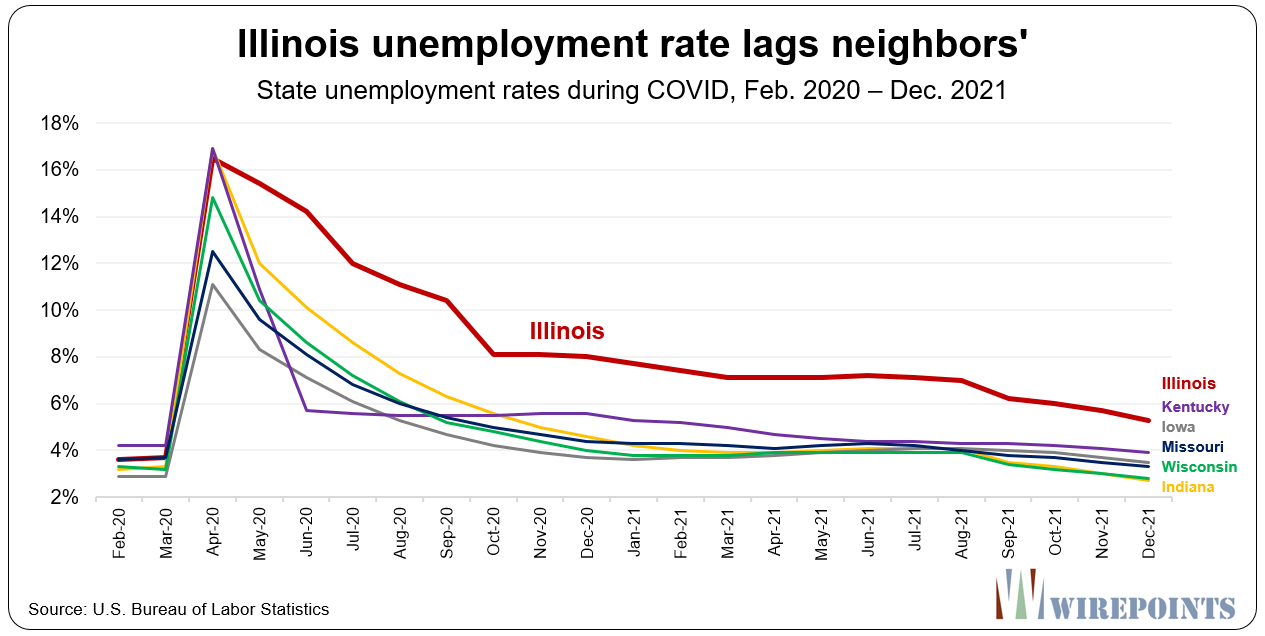Illinois’ taxes, corruption, unfriendly business environment and high labor costs continue to take a toll on the state’s economic recovery. And job prospects for many Illinoisans, particularly in the leisure and hospitality industry, have been made even worse by the state’s COVID policies, some of the nation’s strictest.
Contrast Illinois’ poor 5.3 percent unemployment rate in December 2021, the nation’s 11th-worst, with those of its neighboring states. Indiana’s 2.7 percent rate is almost half that of Illinois’, while Wisconsin’s unemployment is at just 2.8 percent.
All of Illinois’ other neighbors have rates equal to or better than the 3.9 percent national average, according to the most recent Bureau of Labor Statistics data.
 Far more Illinoisans would be employed today if Illinois was simply as competitive as its neighbors. Illinois would have nearly 160,000 more people working if it had the same unemployment rate as Indiana or Wisconsin.
Far more Illinoisans would be employed today if Illinois was simply as competitive as its neighbors. Illinois would have nearly 160,000 more people working if it had the same unemployment rate as Indiana or Wisconsin.
Even if Illinois had Kentucky’s 3.9 percent unemployment rate – the highest among its neighbors – Illinois would have nearly 90,000 more employed workers today.
 The pain of Illinois’ poor jobs recovery isn’t distributed evenly. The state’s hotel, entertainment and restaurant industries have suffered the most.
The pain of Illinois’ poor jobs recovery isn’t distributed evenly. The state’s hotel, entertainment and restaurant industries have suffered the most.
Jobs in Illinois’ food service sector are still down 15 percent, or more than 80,000 jobs, compared to Feb. 2020 according to Illinois Department of Employment Security data. And jobs in arts, entertainment and recreation remain down 16 percent.
Illinois still imposes a statewide mask mandate (to be rescinded Feb. 28) and the Cook County area imposes a vaccine-passport mandate – both of which impact entertainment and restaurants more than other businesses.
In contrast, Illinois’ neighbors dropped most of their COVID restrictions months ago.
 The above data captures just a point in time (as of December 2021), but it’s not a one-off. Illinois’ unemployment rate has significantly lagged its neighbors the entire pandemic.
The above data captures just a point in time (as of December 2021), but it’s not a one-off. Illinois’ unemployment rate has significantly lagged its neighbors the entire pandemic.
 As many as 160,000 Illinoisans are unnecessarily going without jobs today. But it’s an election year in Illinois and maybe, just maybe, lawmakers and candidates will finally address the fiscal and economic reforms – from pension reform to a roll back in collective bargaining powers to lower property taxes – needed to improve Illinois’ jobs climate.
As many as 160,000 Illinoisans are unnecessarily going without jobs today. But it’s an election year in Illinois and maybe, just maybe, lawmakers and candidates will finally address the fiscal and economic reforms – from pension reform to a roll back in collective bargaining powers to lower property taxes – needed to improve Illinois’ jobs climate.
Until they do, many Illinoisans will continue to suffer.
